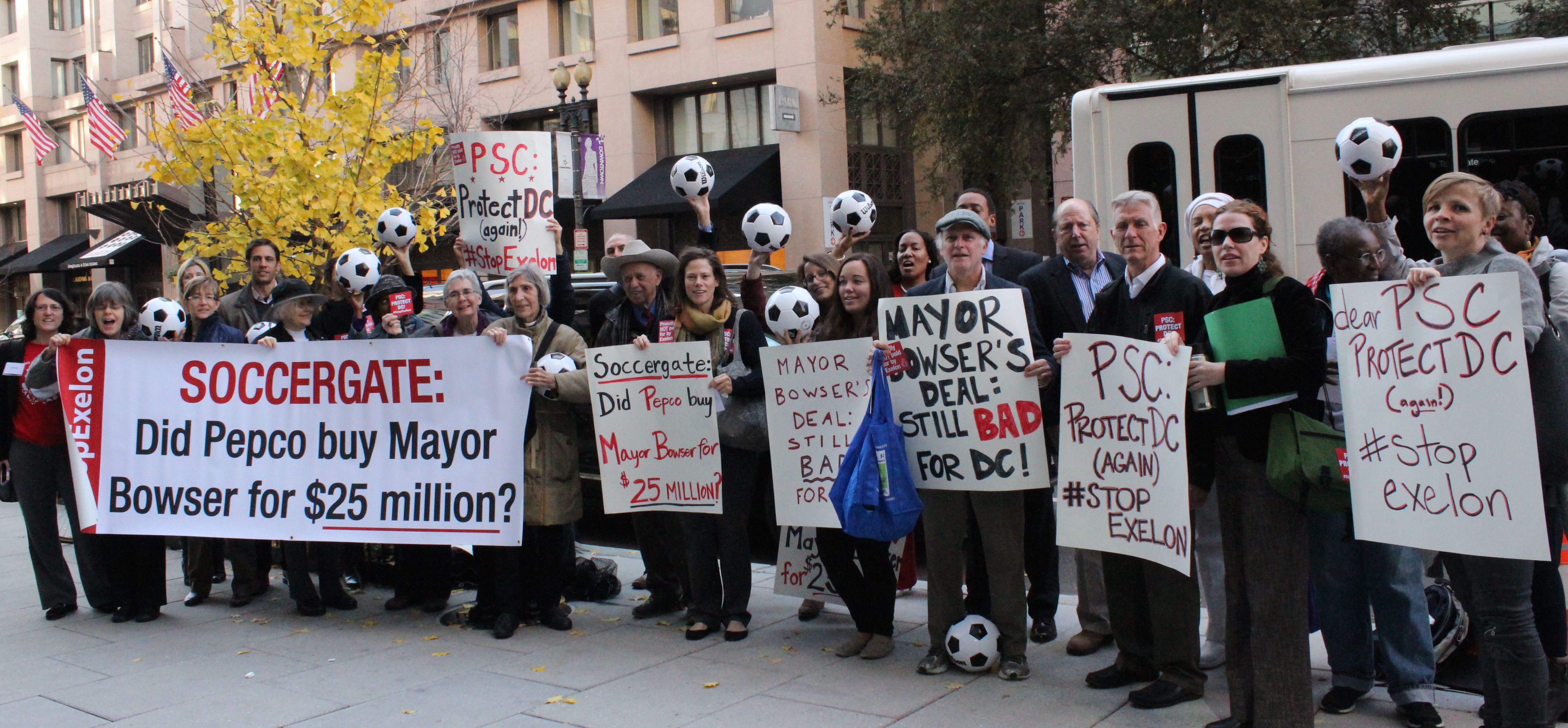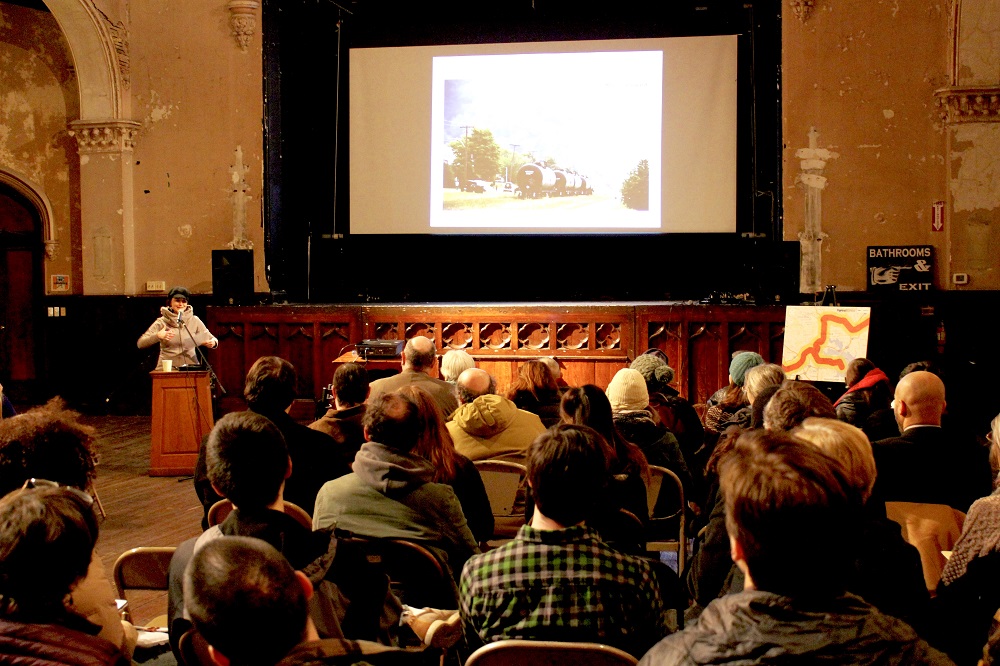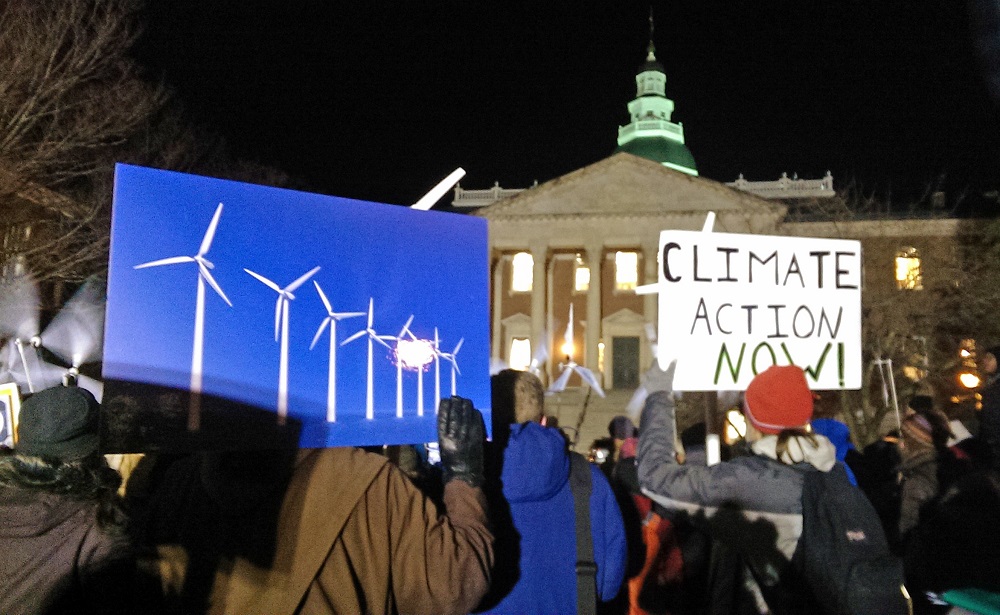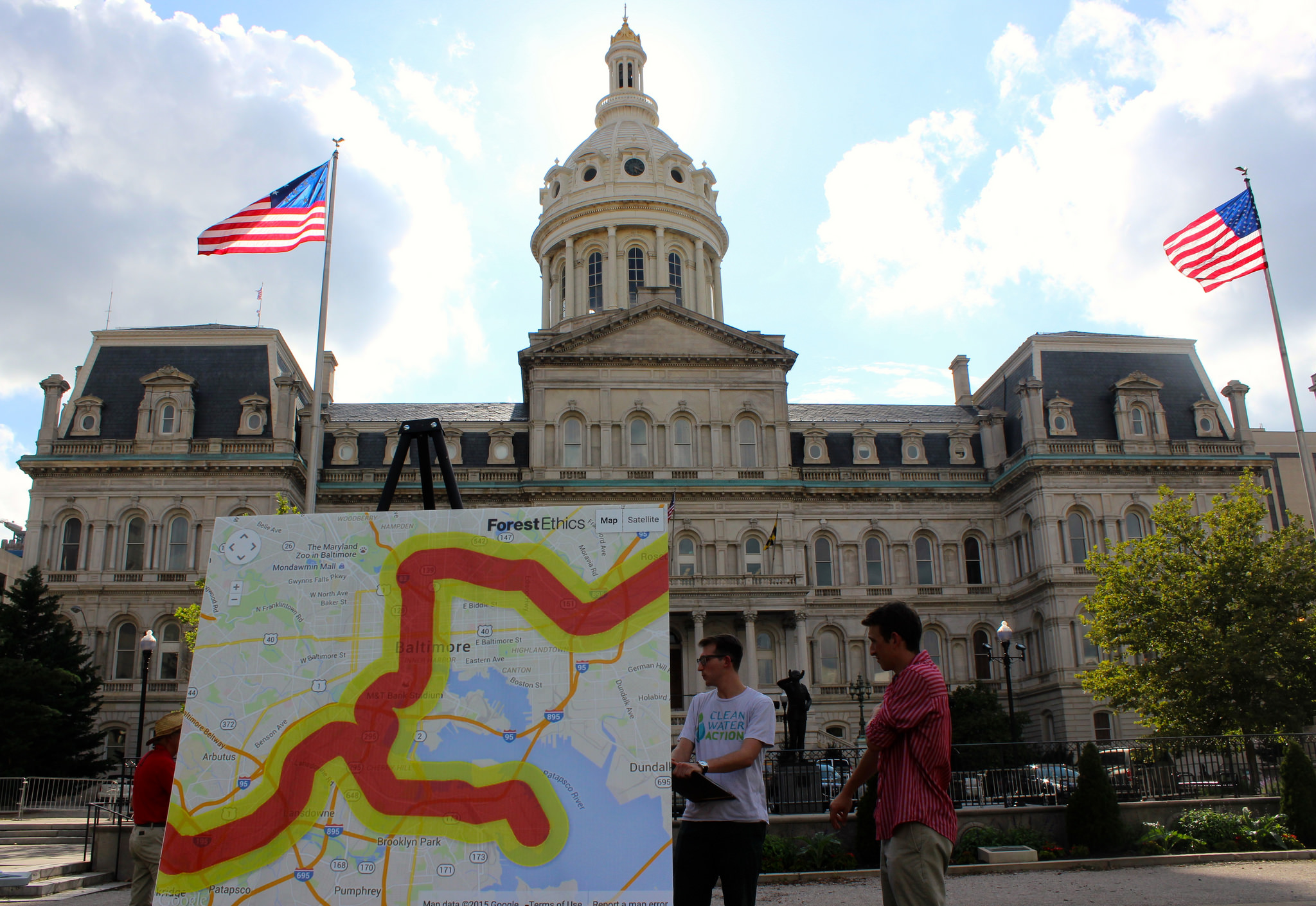Mayor Bowser betrayed DC citizens while the Public Service Commission has now failed to protect ratepayers and the environment
WASHINGTON, D.C. — In a decision marred by pay-to-play politics, the DC Public Service Commission (PSC) today paved the way for local utility Pepco to be sold to an ailing, out-of-state company, an outcome that advocates say would tarnish Mayor Muriel Bowser’s reputation forever.
At a hearing this morning, the PSC first voted 2-1 to reject widely contested settlement terms — struck between Mayor Bowser, Chicago-based Exelon and Pepco — as failing to satisfy the public interest. However, despite a principled dissent from Chairman Betty Ann Kane, Commissioners Joanne Doddy Fort and Willie Phillips then voted to approve a modified version of the settlement that includes only marginal changes and fails to address the core problems that led the PSC to unanimously reject the deal in August.
In her dissenting remarks, Chairman Kane stated that the fundamental “conflict of interest” remains, the revised settlement terms could “make the situation worse,” and there is “no alternative that will address the fundamental structural problem.”
Exelon, Pepco, and other settling parties will have 14 days to decide whether or not to accept the modified settlement terms. If they do, the merger will be automatically approved by way of the 2-1 PSC vote.
Mike Tidwell, director of the Chesapeake Climate Action Network, released the following statement in response:
“This is a disappointing day for the nation’s capital. If these wholly inadequate changes are agreed to, the result will be the same. While Mayor Bowser and Exelon lobbyists celebrate, DC residents will brace for big rate hikes and new roadblocks to clean energy. Chairman Kane deserves praise as the only decision-maker in this whole process who has steadfastly stood up for what’s right.
“Mayor Bowser betrayed DC ratepayers and our environment in a settlement process that reeked of dirty, pay-to-play politics. And for what? For the Mayor’s pet soccer stadium project, made possible by Pepco’s $25 million payment that smells blatantly of corruption? For a slap on the back from the Mayor’s big developer friends at the now-disbanded FreshPAC? For a few shiny, vague promises from Exelon that pale in comparison to coming rake hikes?
“In the wake of this bankrupt process, the majority of PSC commissioners have failed in their duty to protect the public. As Chairman Kane emphasized, the revised deal is fundamentally no different from the deal the commission unanimously rejected last summer when it cited an inherent ‘conflict of interest.’
“If this merger goes forward, it will be a clear win for crony politics. Exelon wants this deal in order to milk DC ratepayers for maximum profits, and prop up its own troubled bottom line. After a barrage of lobbying, ads, and back-room dealing, Mayor Bowser, and now the PSC, have agreed to turn DC ratepayers over to Exelon without securing any substantive public benefit in return. In contrast, thousands of DC residents, a majority of DC’s neighborhood leaders, and faith, small business, social justice, and environmental leaders recognized the indisputable facts, and fought this deal to the very end. Today’s ruling only sharpens the need for a citywide grassroots push for structural change in our energy policy and our politics.”
Contact:
Kelly Trout, 240-396-2022, kelly@chesapeakeclimate.org
Mike Tidwell, 240-460-5838, mtidwell@chesapeakeclimate.org
###
The Chesapeake Climate Action Network is the biggest and oldest grassroots organization dedicated to fighting climate change in Maryland, Washington, D.C. and Virginia. CCAN is building a powerful movement to shift our region away from climate-harming fossil fuels and to clean energy solutions: www.chesapeakeclimate.org.
SUMMARY OF SCANDAL-PLAGUED EVENTS LEADING UP TO EXELON-PEPCO MERGER RULING
April of 2015: FreshPAC launched. Close allies of the Mayor launch a highly controversial political action committee called FreshPAC. A quirk in DC campaign laws allows unlimited contributions to the super PAC from companies and businesses, including those with business before the Mayor and City Council. The PAC is highly criticized by the media, voters, and members of the City Council as a fund that appears open to abuse and pay-to-play politics.
August 25, 2015: Exelon-Pepco merger rejected. The DC Public Service Commission unanimously rejects the proposed Pepco-Exelon merger as a fundamental “conflict of interest.”
September 18, 2015: Pepco pays Mayor’s office $25 million in “Soccergate” deal. Pepco gives the Office of the Mayor $25 million in cash for vague naming rights of property adjacent to the proposed new soccer stadium at Buzzard Point. The structure of the deal is highly unusual. Researchers have not been able to find another deal like it in the country. Not only is all the money paid up front, at a very high price (proportionally more than the Verizon Center naming rights deal), but the brevity and minimized complexity of the two-page legal agreement is virtually unprecedented.
September 19, 2015: Exelon presents merger “settlement” financial terms the day after “Soccergate” payment. Documents released under the Freedom of Information Act show that, the very next day after the soccer deal, Exelon submits new financial information to the Mayor’s office for settlement purposes.
November 10, 2015: FreshPAC is disbanded after widespread criticism. Critics charged it represented a pay-to-play PAC that tarnished DC politics and the Mayor’s public integrity. Exelon continues to refuse to say whether it was asked to donate to FreshPAC while working with the Mayor’s office on a settlement that would give the company its prized $6.8 billion merger.
December 16, 2015: WAMU reveals that former FreshPAC chair registered to lobby for Exelon on the merger. News breaks that Chico Horton, the director of FreshPAC, registered to lobby for Exelon on the merger on September 30, 2015 – the same time that Exelon was negotiating a settlement with the mayor and while FreshPAC was still active and soliciting huge donations from businesses.
January 2016: Chico Horton, the Exelon lobbyist, says he did no “lobbying.” The former head of Bowser’s FreshPAC declares that he did no lobbying – zero – for Exelon during the intense autumn negotiations between Exelon and the Mayor’s office, despite registering as an Exelon lobbyist. Horton said he simply gave the company “strategic advice” that did not officially constitute lobbying.
February 2016: Documents indicate Mayor’s office misled the public on merger negotiations. Documents released under the Freedom of Information Act indicate that the Mayor’s office repeatedly misled the public as to who in her administration actually coordinated and led the merger settlement negotiations between the city and Exelon. The Mayor claimed and still claims that City Administrator Rashad Young and Tommy Wells, head of the Department of the Environment and Energy, led the negotiations. But FOIA documents show that they were informed of key settlement terms after the deal had been negotiated by others close to the Mayor. Who actually led those talks, and what connection to Exelon or Pepco the city negotiators might have had, is still not known. But it was not Wells or Young, as was claimed. Why the discrepancy?
February 26, 2016: PSC rejects the original settlement, but then gives approval to marginally revised terms. Little substantive changes were required on top of the Mayor’s wholly inadequate settlement. Opponents assert the merger is still a fundamental “conflict of interest” and the process was clearly influenced by big-money “pay-to-play” politics.











